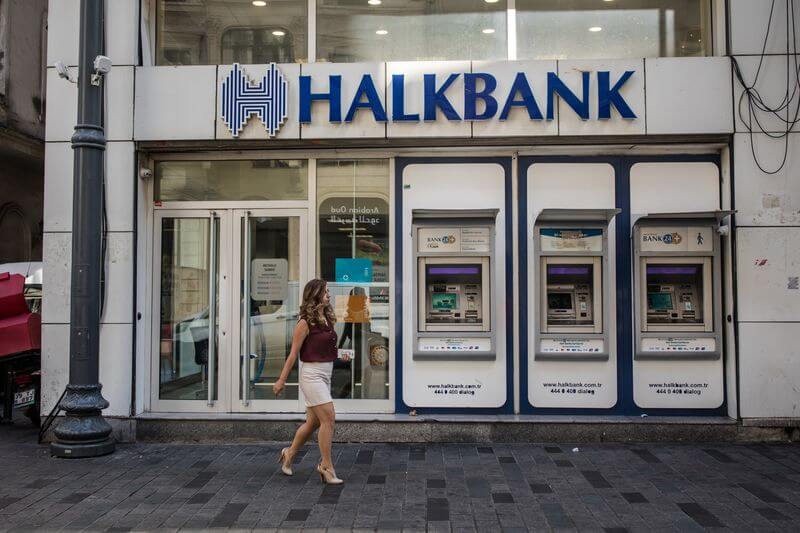Turkish Minister of Finance Nureddin Nebati confirmed on Thursday that three of Turkey’s state banks have suspended the use of Russia’s Mir payment system amid the United States’ (US) warnings to sanction those doing business with Moscow.
Nebati told Reuters that the banks—Ziraat Bank, Halkbank, and Vakifbank—were the last remaining financial institutions that accepted the Mir system. However, he refused to answer when asked whether the banks would move to an alternative payment system.
The minister’s comments follow a Bloomberg report on Wednesday that Turkey’s banks are planning to exit the Russian payment system after the US threatened to impose secondary sanctions. The agency also reported that one of the banks—Halkbank—was charged in 2019 by the US Department of Justice for its participation in a multi-billion-dollar Iranian sanctions evasion scheme.
Turkish state banks leaving Russia’s Mir payment system, Bloomberg reports.
— Kristina Jovanovski (@kjovano) September 27, 2022
Likely shows how real the threat of sanctions or other penalties from the US were. Ankara has a lot of reasons to want the Mir system (tourists are big money in Turkey).
Over a week ago, two Turkish private banks, Isbank and Denisbank, stopped using the Mir system to transact with Russian companies, saying they respect international sanctions regulations and would comply with all national and international laws.
The banks’ decisions came after Washington in August warned Ankara several times against allowing its financial institutions to adopt the Mir system and transact with Russian companies after President Recep Tayyip Erdoğan agreed to pay for part of Turkey’s Russian gas imports in rubles and extend the use of the Mir system. Erdoğan made the decision during a meeting with his Russian counterpart Vladimir Putin in Sochi last month.
Days after Erdoğan’s visit to Sochi, US Deputy Secretary of Treasury Wally Ademeyo held a phone conversation with his Turkish counterpart Yunus Elitaş about Turkey complying with Western sanctions on Ukraine. Adeyemo warned that Russian companies and individuals are trying to use Turkey to evade sanctions.
Is Turkey drifting away from Russia?
— Kristina Jovanovski (@kjovano) September 22, 2022
•high-level meeting on Russia's Mir system reportedly today
•a day after TR strongly criticised planned referendums as "illegitimate"
•TR possibly face US sanctions risk over Mir system; Erdogan said 5 banks working on it. #Ukraine
Later that month, Ademeyo also sent a letter to Turkey’s largest business association, TÜSİAD, warning that Turkish companies risked being sanctioned over ties with Russian companies. In the letter, he urged them against maintaining relations and providing material support to Russian companies.
Reports claim that sanctions have forced Turkish institutions to reconsider doing business with Russian companies. Erdoğan said last week that Turkey had no option but to find an alternative payment system “whether we like it nor not” due to the possibility of sanctions.
Moreover, despite being a North Atlantic Treaty Organization (NATO) member, Turkey has refused to impose sanctions on Russia. Turkish authorities have insisted that sanctions are counterproductive and that dialogue is the only way to end the Ukraine war. In fact, Turkey has hosted several meetings between Russian and Ukrainian officials since the war began in February. It also played a crucial role in mediating a deal between the two countries, allowing the export of millions of tonnes of grain stuck at Ukrainian ports.
Local Telegram channels report that #Uzbekistan has stopped accepting the #Russian card payment system "Mir". This was confirmed by processing center UZCARD.
— NEXTA (@nexta_tv) September 23, 2022
Earlier, these cards were rejected in #Turkey, #Kazakhstan, #Vietnam and #Armenia for fear of falling under sanctions. pic.twitter.com/avAzIqR2yS
Turkey has also been trying to establish greater economic ties with Russia, despite other NATO allies imposing sanctions against Moscow. It more than doubled its Russian oil imports to 200,000 barrels per day (bpd) this year compared to just 98,000 bpd in 2021.
The US threat of sanctions has also worked in the case of Uzbekistan. Last week, Uzbekistan’s leading electronic payments provider Uzcard halted payments using Mir cards.
Russia developed Mir in 2014 to overcome Western sanctions following its annexation of Crimea. It also helped Russia partially circumnavigate the SWIFT financial network, from which Moscow was banned after invading Ukraine.

